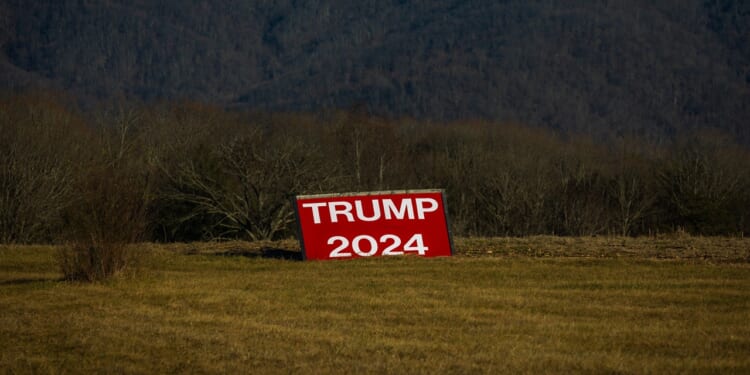Trump’s imports of foreign food, as well as his launching of an ill-considered trade war with China, have driven down prices and cut off American exports.
Upon electing Donald Trump to the presidency for a second time, voters were promised a “Golden Age” in America. Instead, the American people are getting something decidedly darker. Of course, Trump still has around 36 months to move the needle closer to what he promised the American people while running for reelection. Not all the problems currently afflicting America are his fault. Nevertheless, he’s the president now…and the buck stops with him.
And for American farmers under Trump’s watch, the situation is decidedly bleak. Promising to put America first in all things, Trump has instead placed the American farmer last—all while empowering his Argentinian and Turkish competitors.
Why Was Trump Importing Eggs from Turkey?
As one catchy title from CNN’s website reads: “To help solve its egg price crisis, America is turning to Turkey (the country).” The article, from February of this year, cites the Egg Producers Central Union in Turkey as stating that Ankara planned to “export 420 million eggs to the United States this year.”
It is difficult to fault Trump for this move. It was a necessary, quick reaction to a real crisis spurred by the Biden administration’s decision to kill scores of American egg-laying chickens out of an abundance of caution born out of fear over avian flu. To be clear, Trump continued this policy for the first month of his presidency, too. Nevertheless, it created entirely new dependencies on foreign agriculture.
Trump’s China Trade War Is a Catastrophe for Soybean Farmers
But the real kicker came when Trump launched his trade war against the People’s Republic of China (PRC).
To be clear, Trump’s overall desire to use tariffs to both equalize unfair trade practices, as well as to force national security-sensitive industries to re-shore here in the United States, is an imperative. Still, the way in which the president has gone about the trade war has been ham-fisted and short-sighted. And in the specific case of America’s soybean farmers, it has been a disaster.
America’s soybean farms are among the country’s most profitable sectors. The farmers who work in that sector are understandably proud of their work. Soybeans are the largest agricultural export from the United States, accounting for more than $24 billion of US agricultural trade last year.
China purchased 52 percent of those soybeans from American farms. However, since May—shortly after Trump announced the trade war with China—so-called “Liberation Day”—Beijing did not place a single order for US soybeans. Instead, China purchased large quantities of soybeans from Argentina and Brazil, empowering those two South American states’ economies while severely damaging America’s once robust soybean industry. Many soybean farmers in America are expressing understandable concern that, even if Trump can resolve the trade dispute with Beijing over soybeans, the Chinese will not return—at least not fully—to doing business with American farmers the way they did previously.
Regardless of the long-term implications, America’s soybean farmers are hurting. Trump has promised to share with the ailing soybean farmers of America the money that the tariffs have allegedly brought into the national treasury. However, there is even some dispute among economists as to whether the $200 billion the tariffs have brought into the country in the form of customs duties in the first 11 months of Fiscal Year 2025 will be sufficient to offset the higher prices on consumers.
Even that, however, is unsustainable. The United States cannot pay otherwise productive farmers to not produce their products, but to still get paid for not producing them. The entire scheme is counterproductive—especially if the trade war drags on and China becomes accustomed to the new paradigm of doing business with Brazil and Argentina for soybeans.
There’s little doubt that the United States should have never allowed for its agricultural industry to become as dependent on a hostile nation, like China, the way that it has. But at the same time, the approach that the Trump administration has taken is far too onerous on the very people Trump was elected to protect.
It doesn’t end there.
Trump’s Beef Imports Are Making Argentina Great Again
To add insult to injury for America’s besieged farmers, the Trump administration is talking about allowing Argentine beef to be sold in the United States as a way to offset the historically high present price of beef in America’s grocery stores. America’s cattle ranchers are understandably upset.
It is obvious that Trump is doing this as a favor to his political ally, the embattled president of Argentina, Javier Milei. But lowering prices on American consumers by destroying American cattle farms—and importing foreign meat to do it—is not an “America First” policy.
R-CALF USA is an advocacy group that seeks to maintain America’s independent market for cattle and sheep producers. According to this group, the real reason that the price of beef in the United States is so onerous on already cash-strapped consumers has more to do with the flooding of America’s market with cheap, poorly regulated beef imports, as well as a lack of competition due to consolidation among major American meatpackers.
R-CALF makes the sensible case for simply regulating import volumes to protect domestic production while enforcing existing laws. It advocates maintaining antitrust regulation aimed at breaking up blatant market monopolies in the cattle industry, as well as enforcing the Stockyards Act of 1921, which is aimed at promoting fair trade practices in livestock markets and preventing abusing tactics by packers.
None of this is on the agenda for the Trump administration. Their solution is to simply flood our markets with more foreign sources of beef. Of course, like the Turkish egg example, it’s a short-term measure that’ll bring down prices. But it does nothing to address the fundamental crisis facing America’s agricultural sector. And it is a crisis that is largely the result of shoddy government policies—that Trump is exacerbating.
Earlier this year, Bloomberg reported that the United States became a net importer of food. This trend has continued in the Trump administration. In fact, Trump has worsened this dangerous trend. Blessed with bountiful land, and isolated from the ravages of Eurasia by two oceans, the United States government has done what no invading army could have ever done to us: made us reliant on foreign sources of food!
Milton Friedman once said that “If you put the federal government in charge of the Sahara Desert, in five years there’d be a shortage of sand.” The US government is doing that with America’s food.
And as the independent war correspondent Michael Yon has been warning for several years, the US has artificially created real vulnerabilities in its national food supply that could be exploited by rivals—and lead to a famine here in the United States. Trump must reverse these absurd agricultural policies before it’s too late.
About the Author: Brandon J. Weichert
Brandon J. Weichert is a senior national security editor at The National Interest. Recently, Weichert became the host of The National Security Hour on America Outloud News and iHeartRadio, where he discusses national security policy every Wednesday at 8pm Eastern. He is also a contributor at Popular Mechanics and has consulted regularly with various government institutions and private organizations on geopolitical issues. Weichert’s writings have appeared in multiple publications, including The Washington Times, National Review, The American Spectator, MSN, The Asia Times, and others. His books include Winning Space: How America Remains a Superpower, Biohacked: China’s Race to Control Life, and The Shadow War: Iran’s Quest for Supremacy. His newest book, A Disaster of Our Own Making: How the West Lost Ukraine is available for purchase wherever books are sold. He can be followed via Twitter @WeTheBrandon.
Image: Shutterstock / christianthiel.net.


















